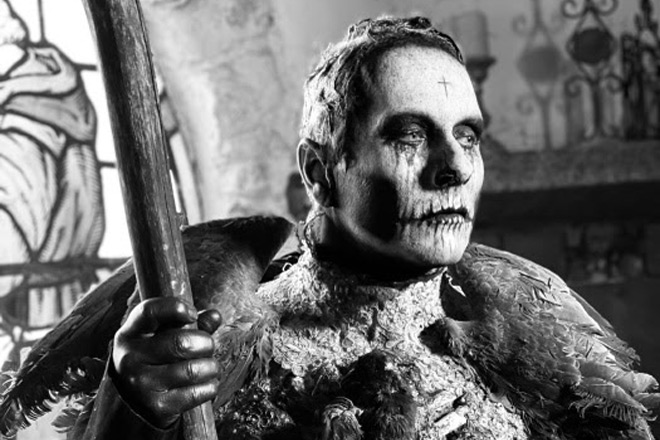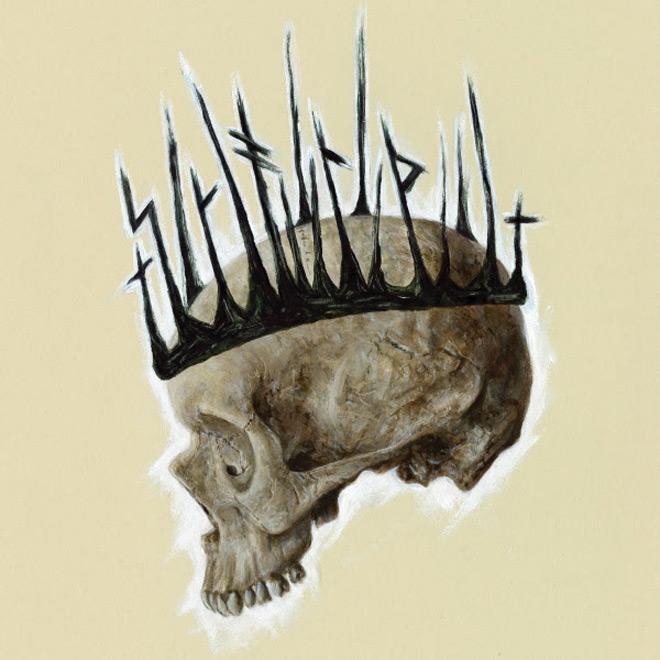
From his time with hair band Kingpin to fronting the Swedish Metal act Shotgun Messiah in the late ‘80s and early ‘90s, the talented singer-songwriter and multi-instrumentalist left behind his native Sweden to seek Rock-n-Roll stardom on sunny California shores. Hard work and perseverance would bring him to Industrial stalwarts KMFDM, as well as providing a pivotal role in the development of Marilyn Manson. As producer of the 2001 breakout single “Tainted Love” for the Not Another Teen Movie soundtrack, Sköld would go on to co-author the Resident Evil Soundtrack in 2002 before joining the band full-time for 2003’s The Golden Age of Grotesque.
Over the past three decades, Sköld has continuously added to his extensive resume by working with The Newlydeads, Skinny Puppy side project Ohgr, KMFDM ‘spin-off’ MDFMK, and, more recently, as a key collaborator with Motionless In White. All this while maintaining his solo career, creating Not My God alongside Nero Bellum (Psyclon Nine), and continuing to go wherever the muses take him.
This time around, for his blistering fifth solo LP, Sköld has chosen to return to his Metal roots. Perhaps it is a counterreaction to the violent noise of the past year that inspired this pared down approach, as he uses his sonic pulpit to confront that inevitable day of reckoning head on. In this, the 10-song Dies Irae, Latin for “Day of Wrath,” is firmly planted in both the past and present, a sonic trip through NWOBHM-influenced guitar work that allows its creator to reflect on his own mortality. It is, much like the video for “Dirty Horizon,” a darkly foreboding look at the “struggle for meaning and redemption in a wrathful, fallen world.”
It goes without saying that one should not expect unicorns snorting Pixy Stix on Dies Irae. So while nothing is apt to make Sköld’s dedicated disciples turn into keyboard savages, the collection is an eclectic one. It all kicks off with the aforementioned single “Dirty Horizon,” a track that revels in NWOBHM-influenced guitars that complement the talented musician’s breathy vocal style. “Never follow the herd,” he urges, though it would be hard to imagine a sheep rocking out to this music.
As previously stated, some of the material that forms Dies Irae is more stripped down and raw than 2016’s The Undoing or 2019’s Never Is Now. There’s a dialing back to Sköld’s Rock-n-Roll roots that inspires the bleak “The End Is Near,” where scorching guitar work helps to propel a condemnation of the rat race that is society. Meanwhile, sinister licks charge across “This Is The Way,” and meandering rocker “Goodbye” provides melodic fretwork that echoes the finesse of Guns N’ Roses’ virtuoso Slash. It’s refreshing, unadulterated Rock-n-Roll that provides a delicious balance for the songs that favor the electronic.
Because much of the album reflects the devil we know: a titan of Industrial Metal. We hear this facet of Sköld’s identity on the sensual, funereal sway of “Love Is a Disease,” the entrancing “As Above So Below,” and the enormously provocative, sonic beast that is “Kill Yourself.” There are moments where punctuated beats take over in “Silicon Dreams,” but it is “Terrified” that provides the album’s show-stopper. Here undulating cyborg synths wrap their spongy tentacles around the bloodied heart of Sköld’s best vocal performance on the record, an emotive and mesmerizing moment, for sure.
Throughout all of its moving parts, Dies Irae offers reflections on humanity. Case in point, “Unspoken,” whose brilliant programming provides the foundation for a look at the good and the bad within ourselves and humanity, the flaws and faults that allow some to drown beneath the minutiae and to press “Pause” on living. So it’s fairly obvious that morbid outlooks are another theme that crops up, in songs such as “Goodbye” and “Dirty Horizon,” along with varying references to the religious and occult throughout the LP.
Despite all of this there is poetic simplicity to Sköld’s lyrics that leaves plenty of room for interpretation while still providing a foundation for where he hopes to guide his listeners; a sort of ‘less is more’ approach to songwriting, if you will. In this, the “black cloud on the dirty horizon” is an omen, a reminder to question authority and defy the status quo, but it’s not a manifest—so just don’t let that minutiae of life pull you under. Would it be cliché to end by saying ‘carpe noctem’? Cryptic Rock gives SKÖLD’s Dies Irae 4 of 5 stars.






Very interesting read 🙂